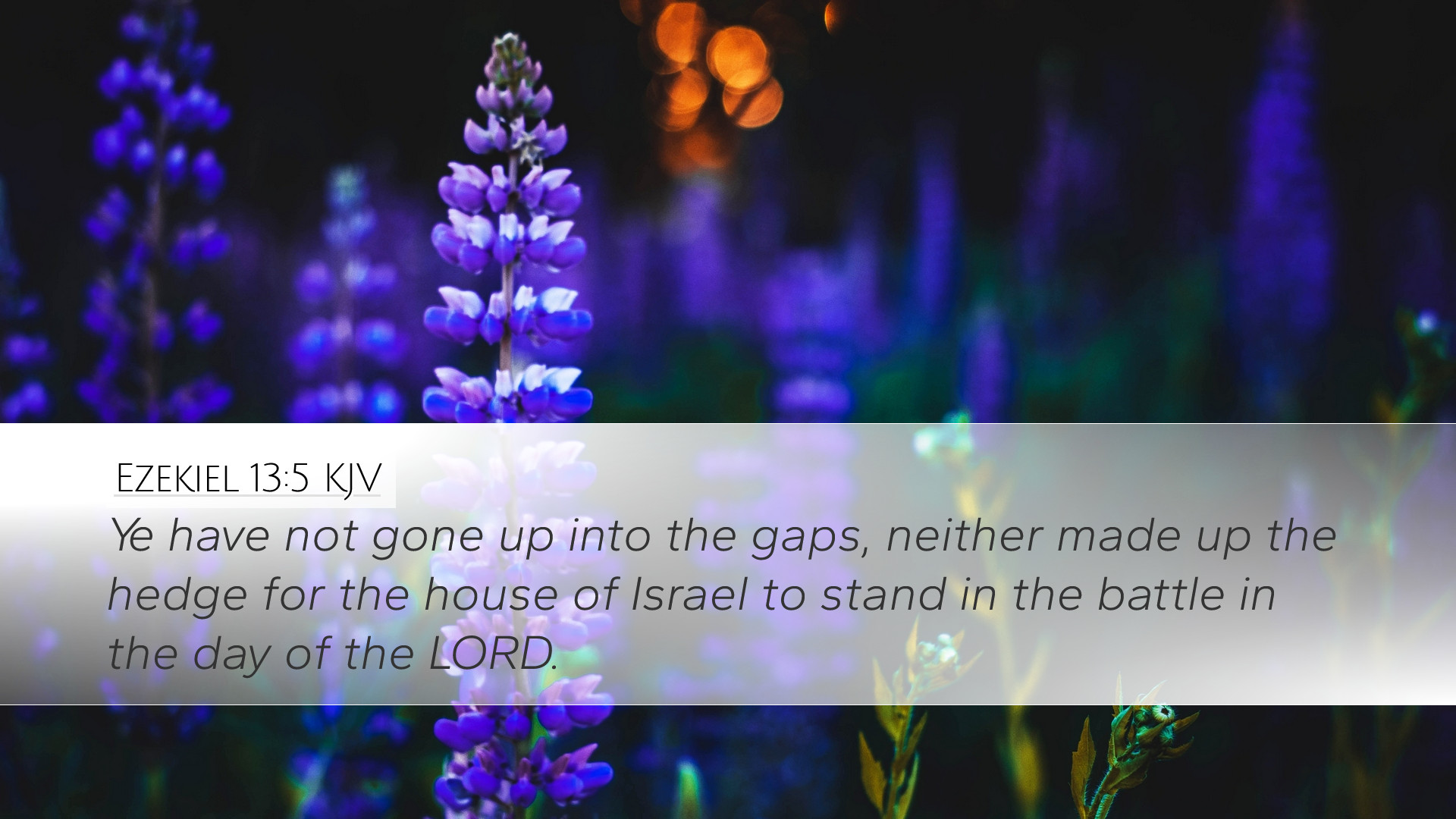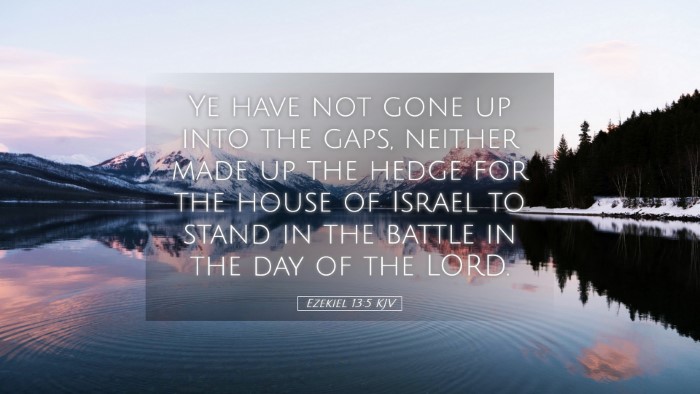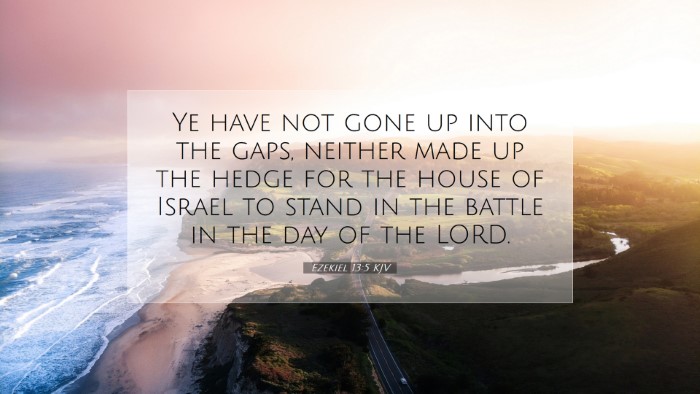Ezekiel 13:5 - Commentary
Verse: "Ye have not gone up into the gaps, neither made up the hedge for the house of Israel to stand in the battle in the day of the Lord."
Contextual Background
The book of Ezekiel, authored by the prophet Ezekiel during the Babylonian exile, addresses the sins of Israel and pronounces God's judgments against the nation. Chapter 13 specifically critiques the prophets of Israel who have prophesied falsely and provided a false sense of security to the people.
Summary of Insights
This verse points to the failure of the false prophets to intercede for the people and protect them from impending judgment. The imagery of "gaps" and "hedges" symbolizes spiritual and moral fortification, which the prophets neglected.
Commentary Insights
Matthew Henry's Commentary
Matthew Henry emphasizes the role of the prophets as watchmen over Israel. According to Henry, these watchmen failed to stand in the gaps as defenders of the faith, allowing the people to remain unguarded against calamity. He notes that the lack of intervention contributed to spiritual decay and national disgrace.
- The Call for Vigilance: Henry points out that true prophets would have taken a stand against sin and interceded for the nation, advocating for righteousness.
- The Importance of Intercession: He highlights the necessity for leaders to pray and seek God’s mercy, which was markedly absent in the actions of these prophets.
Albert Barnes' Notes on the Bible
Albert Barnes offers a detailed linguistic and historical analysis of the terms used in this verse. He explains that "gaps" refer to breaches in the walls of a city, implying that the prophets' failure to act left the people vulnerable to attacks:
- Spiritual Breaches: Barnes correlates the physical breaches with the spiritual failings of the people, urging that a proper response to sin is crucial for community integrity.
- Responsibility of Leaders: He argues that those in positions of spiritual authority bear a significant responsibility to guard against moral decline and to prepare the community for spiritual warfare.
Adam Clarke's Commentary
Adam Clarke provides a more rhetorical approach, emphasizing the gravity of neglecting one’s call to watch over God’s people:
- The Role of Prophets: Clarke insists that the primary role of a prophet is not only to speak but to actively work to fortify the people, both morally and spiritually.
- Urgency of Action: He underscores that the "day of the Lord" is a theme that runs through the prophetic literature, signifying a time of reckoning, where preparation is vital.
Theological Implications
The verse speaks profoundly to the responsibility of the Church today. In a world rife with spiritual challenges, it urges leaders and believers alike to maintain vigilance and intercede for the community. The idea of engaging in the "gaps" reminds ministers that they are not merely proclaimers but also protectors of the faith.
Practical Applications
- Individual Responsibility: Every believer is called to identify spiritual gaps in their lives and in their communities, actively seeking to fill them through prayer and action.
- Corporate Vigilance: Churches should regularly assess their involvement in prayer, worship, and community outreach to ensure that they are standing firm against external and internal threats.
- Moral Courage: It challenges leaders to demonstrate moral courage, standing firm against societal pressures that seek to compromise the integrity of the Gospel message.
Conclusion
This commentary on Ezekiel 13:5 serves as a poignant reminder of the vital role leaders play in spiritual guidance, the importance of proactive intercession, and the necessity for both individual and corporate action in standing against spiritual decline. The prophetic call encapsulated in this verse reverberates through time, urging the faithful to engage fully in the spiritual warfare at hand.


